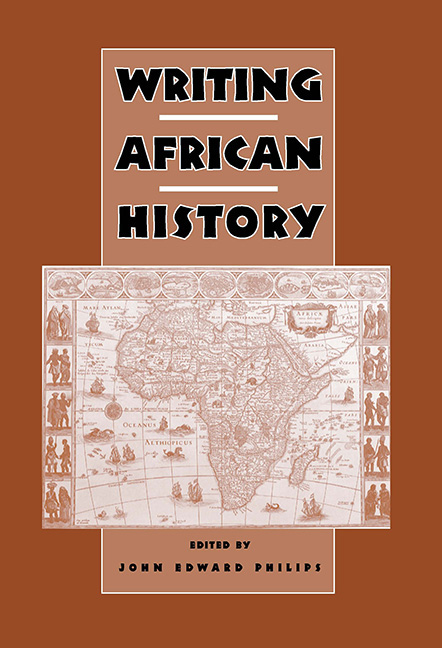Introduction
Published online by Cambridge University Press: 11 May 2017
Summary
When the first edition of Africa in Time Perspective: A Discussion of Historical Reconstruction from Unwritten Sources was published in 1964, I had been exploring in what was then a largely uncharted field: specifying how to identify and utilize unwritten sources for discovering African history. It is in that context that the editor, John Philips, asked me to provide an introduction to this collection of writings on historical methodology as applicable to the conditions of the African continent. The works represented in this volume demonstrate the progress made in three and a half decades.
This is not a volume on the history of Africa; it is a compilation of discussions and advice by specialists in diverse approaches to research in particular kinds of evidence that have been found useful in elucidating African history and identifying problems encountered in their use.
One traditional conception of history was that it was based on documentation in the form of written texts. If there were no written documents there could be no history. It was logical to designate as prehistory any period before writing. This rubric is still not entirely obsolete. The more common conception today is that history is based on evidence. Prehistory, then, should be a non-entity. If there is evidence, there can be history; if there is no evidence, there is nothing to write about. Using this formula, which was proposed in the teens of the twentieth century, but for a long time not often utilized, historians can go beyond written sources. Archaeology, historical linguistics, oral traditions, ethnobotany, and some other fields were early flagged as significant for history, and gradually studies pertinent to Africa, using such sources, began to appear. Some of these works we can call “pre-documentary history,” a designation used by one of the contributors to this volume.
It is now recognized as essential to co-opt the results of other disciplines into history in the manner that concepts and data of sociology, economics, and psychology (which have been essentially synchronic) have long since been incorporated into historiography. For most of sub-Saharan Africa until a few centuries ago, as for pre-Columbian America, Oceania, Australia, and some areas of Asia, history must be largely derived from unwritten sources of evidence. Indeed, African history is developing as world history is coalescing to provide a global context of similarities and distinctions among and between geographical branches of human populations.
- Type
- Chapter
- Information
- Writing African History , pp. 1 - 22Publisher: Boydell & BrewerPrint publication year: 2005

